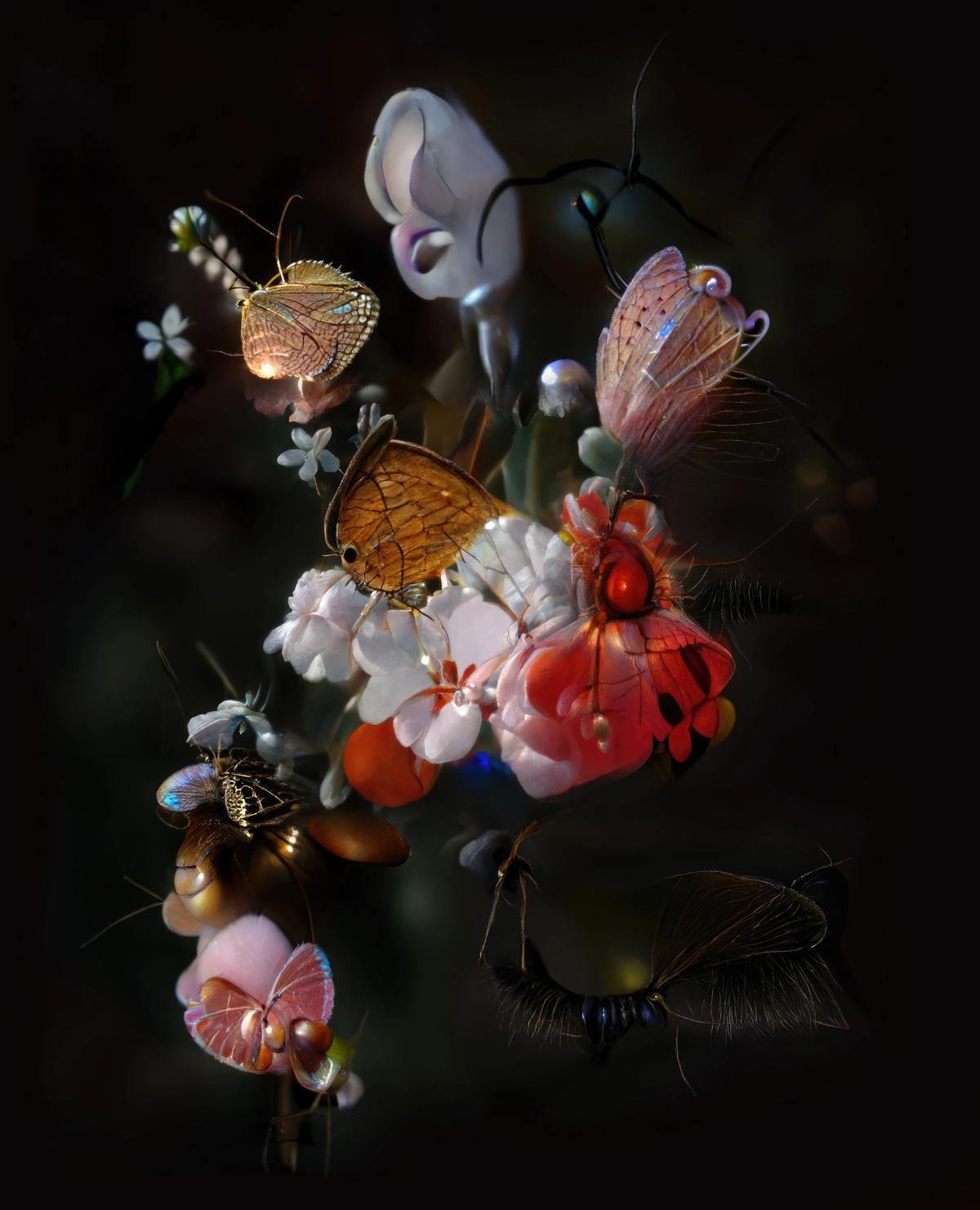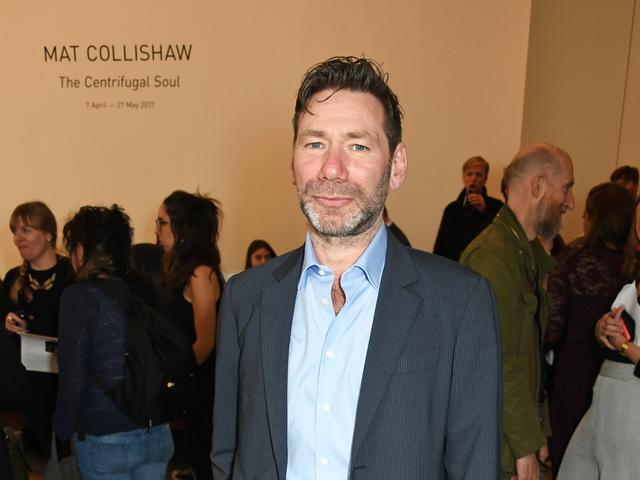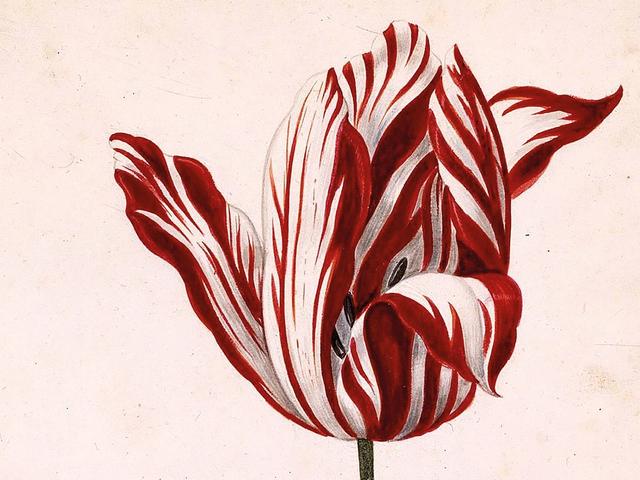The artist Mat Collishaw, part of the 1990s Young British Artists group, will unveil a series of works at Kew Gardens in London this autumn created using artificial intelligence (AI).
The exhibition (Petrichor, 20 October-7 April 2024) will include new commissions alongside existing works. Collishaw says in a statement: “With its rich horticultural heritage and ongoing commitment to environmental conservation, Kew Gardens is the ideal location for me to explore the intersection of art, nature, and technology with this exhibition.”
Collishaw's Alluvion series will make its UK debut at Kew, comprising six new works inspired by Dutch Golden Age paintings of flora and fauna and generated using AI. From a distance, the Alluvion works present flowers and plants but on closer inspection, the buds are made from layers of insects. The series draws upon a natural phenomenon known as Pouyannian mimicry when a flower imitates an insect to attract other insects, boosting the reproduction of the flower species.
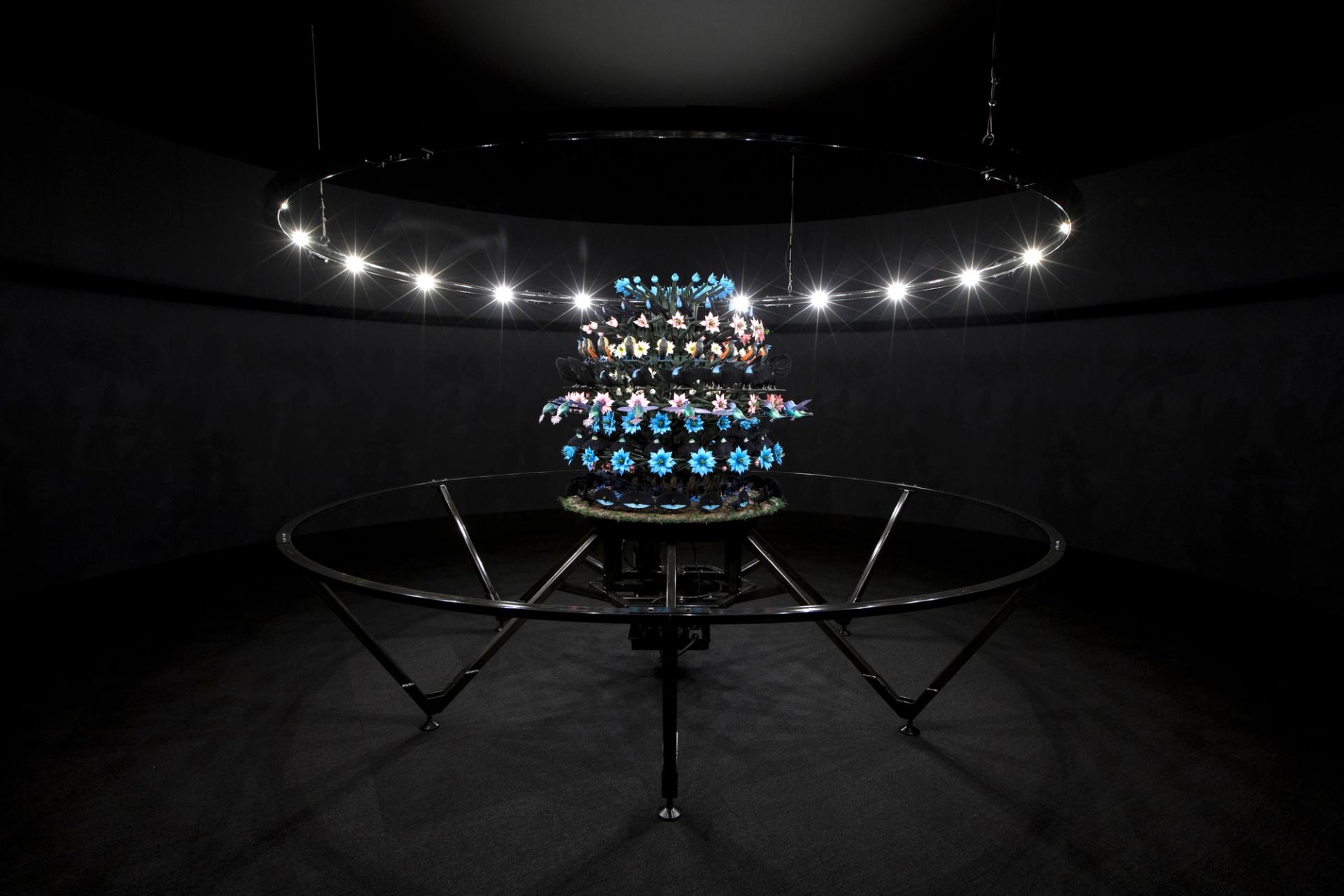
Mat Collishaw's The Centrifugal Soul (2016)
Courtesy MONA Tasmania
In March Collishaw created a series of NFTs called Heterosis that combine “genetic algorithms with blockchain technology to facilitate the hybridisation of mutable digital flowers”.
Heterosis, which will also be shown at Kew, is described in a statement as “a collection of dynamic NFTs which combine genetic algorithms with blockchain technology to facilitate the hybridisation of mutable digital flower”. The project is inspired by the tulip mania of the 17th century when, at its peak, a single bulb of the most coveted Semper Augustus flower was said to have an asking price of 10,000 guilders.
“I've made works featuring flowers for almost 30 years and I have a show at Kew Gardens this year and have been studying flower hybridisation, something my grandfather did as a living,” Collishaw told Bridgeman Images earlier this year.
“When the big NFT boom of 2021 happened, it appeared to correspond uncannily with the speculative bubble of 1637, Tulip mania. Beauty was dependent on rarity and rarity established value. I've made a lot of digital works so thought it might be interesting to create an artwork that parodied this correlation,” he added.
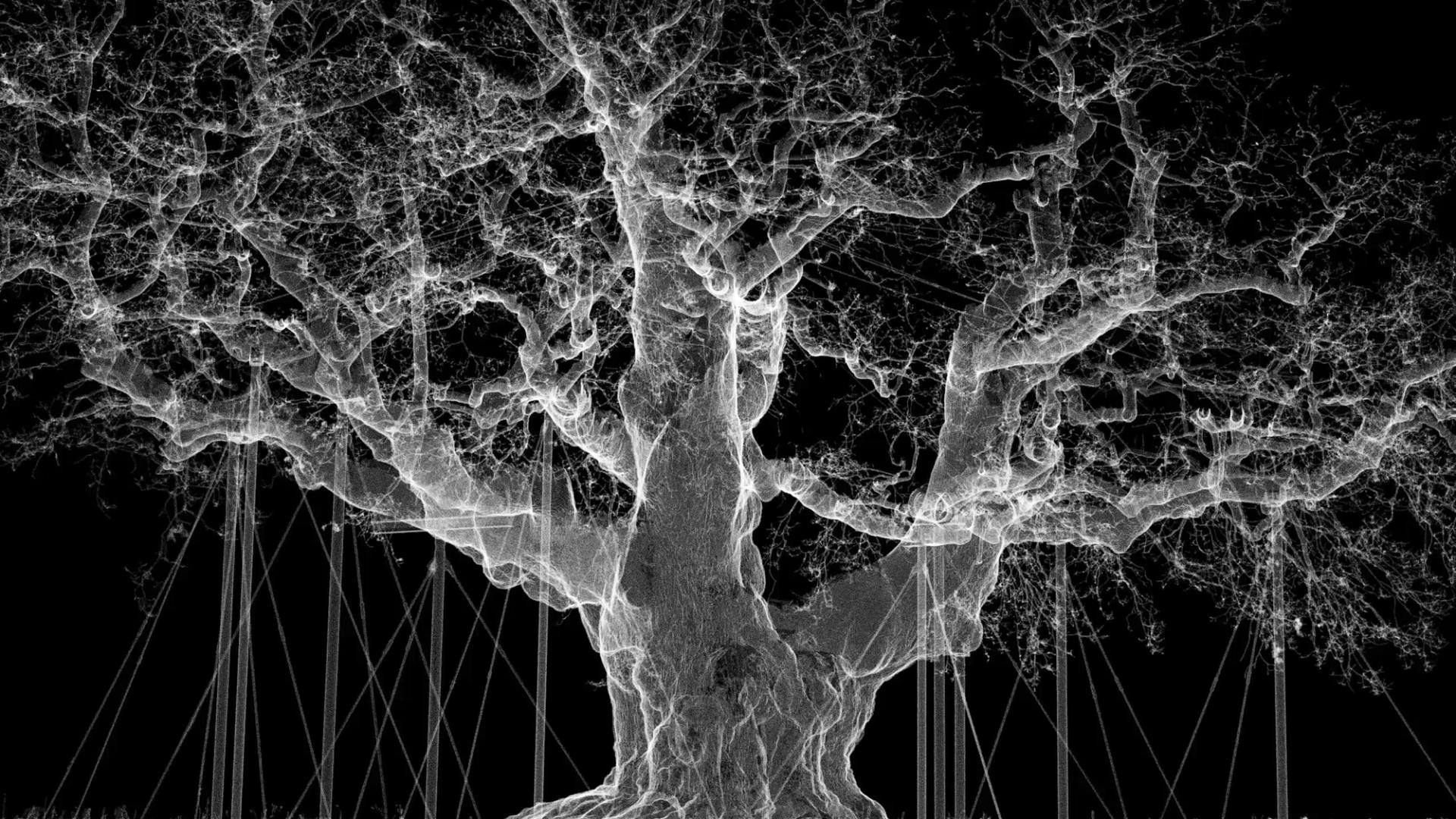
From Mat Collishaw's Albion series
Credit: Mat Collishaw
Other works due to feature in the Kew show include The Centrifugal Soul (2017), a pre-film flickering zoetrope that produces scenes featuring birds of paradise, and Albion (2017), a hologram-like piece made in response to the European Union “Brexit” referendum held in the UK in 2016. “Albion refers to the ancient oak tree as an emblem of England, a ghost like apparition supported by chains and crutches,” the statement from Kew Gardens adds.
In 2017, Collishaw said of the work: “The [oak] tree has been preserved in this way because people want this idea of the past preserved in the present. But the way I presented the work was that it was an illusion. Maybe that old England never really existed. That England where we didn’t have any immigrants and there was full employment, and everything was rosy.”


